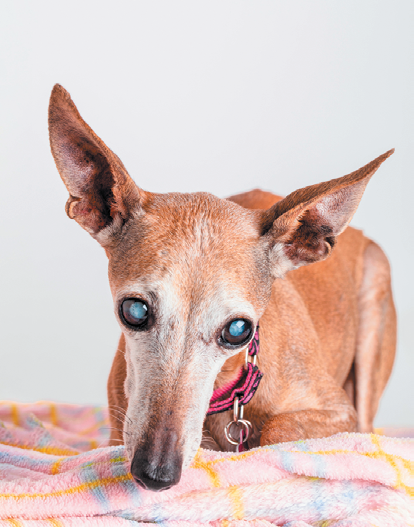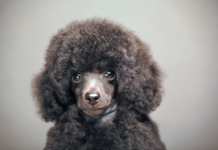Q. Both of my 11-year-old dog’s eyes have gone cloudy. He has cataracts, doesn’t he? Will he need cataract surgery?
Oliver Pryor
Grapeland, Texas
Dear Mr. Pryor,
A. A cloudy lens does not automatically mean there’s a cataract. In fact, there’s a normal age-related change in the eyes that also leads to cloudy lenses. It’s called lenticular sclerosis (also known as nuclear sclerosis), and it doesn’t affect vision at all. It also tends to occur in both eyes at the same time, which makes us think that perhaps your dog has it. If that’s the case, there’s no problem.
But the only way to tell for sure is to take your dog to the veterinarian for a reliable diagnosis. If your dog does turn out to have cataracts, it does not automatically mean surgery is in his future. Even a dog whose lens has become up to 30 percent opaque because of a cataract will still be able to see reasonably well and therefore may not need an operation to fix the problem.
That said, your pet should be monitored regularly because some cataracts progress quickly, and the thicker and denser they become, the more likely they will lead to blindness. In addition, an untreated cataract can potentially slip out of place and float around inside the eye. If it settles in the wrong place, it can block fluid drainage that leads to glaucoma — another cause of blindness, and one that can be very painful.
In the event that your dog does undergo cataract surgery, the doctor will remove the lens and replace it with a clear plastic or acrylic lens to allow light to properly reach the back of the eye.
While any breed can develop a cataract, those that tend to be predisposed include the smooth fox terrier, American cocker spaniel, Havanese, bichon frise, silky terrier, miniature and standard poodle, miniature schnauzer, and Boston terrier.





